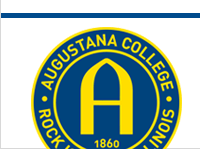Document Type
Poster
Publication Date
2015
Disciplines
Biology | Entomology | Forest Biology | Forest Management | Plant Biology | Population Biology
Description, Abstract, or Artist's Statement
Fire suppression has nearly eliminated fire as a disturbance in temperate deciduous forests. Lack of fire is transforming these ecosystems through a positive feedback loop termed mesophication: cool, damp, shady conditions become continually more favorable for a few mesophytic species, while deteriorating for diverse array of heliophytic ones. Disturbances caused by urbanization fragment and degrade remnant forests. In urban settings, human management (or lack thereof) is often a dominate driver of succession. Carabid diversity, understory vegetation, patch size, patch connectivity, and permeable surface area were all examined in multiple forest plots in Rock Island and Moline. The result of this research adds to our understanding of how mesophication and urbanization interact to influence forest ecosystem composition and structure at two trophic levels-plant understory and carabid beetle communities.
Augustana Digital Commons Citation
Brosius, Tierney and Reisner, Michael. "Understory diversity and composition drives carabid assemblages" (2015). Biology: Faculty Scholarship & Creative Works.
https://digitalcommons.augustana.edu/biolfaculty/1
Included in
Biology Commons, Entomology Commons, Forest Biology Commons, Forest Management Commons, Plant Biology Commons, Population Biology Commons

Comments
The results of this research are on-going. We expect a paper to be published in the next year (2016-2017).